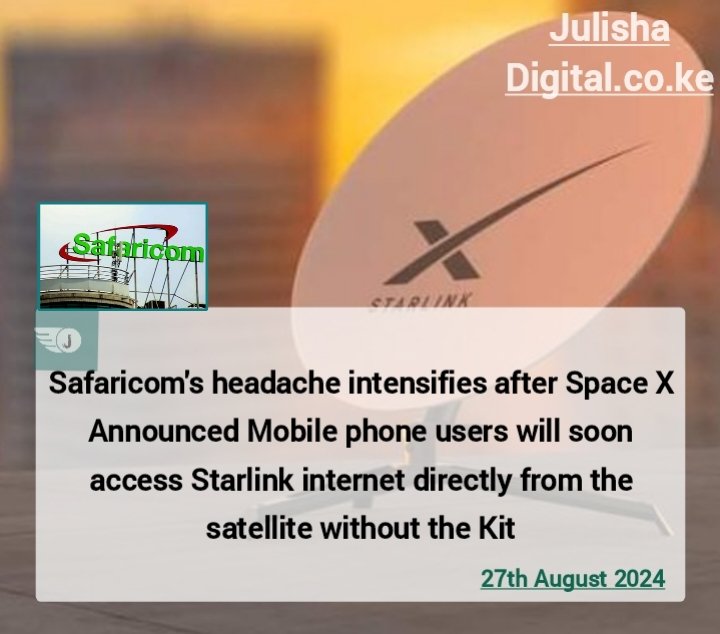Safaricom’s concerns have intensified with SpaceX’s announcement that its Starlink service will soon offer direct satellite connectivity to mobile phones without requiring any additional hardware.
This move by SpaceX, in collaboration with companies like T-Mobile, aims to extend Starlink’s satellite internet coverage globally by leveraging existing cell networks.
The upcoming technology is expected to revolutionize communication by allowing mobile users to access internet services directly from low Earth orbit satellites, even in remote areas where traditional networks struggle to provide reliable coverage.
This development presents a significant challenge for traditional mobile operators like Safaricom, who might see their market dominance threatened as Starlink’s service could bypass local networks entirely.
Moreover, with the potential for faster speeds, wider coverage, and reduced dependency on local infrastructure, Starlink is poised to disrupt the mobile data landscape in regions like Kenya where Safaricom holds a leading position.
The race towards broader satellite connectivity is heating up, with competition between companies like SpaceX and local network providers likely to drive further innovation and shifts in customer loyalty.
Safaricom may need to consider how it can compete or collaborate with such emerging technologies to retain its market share in the future.


